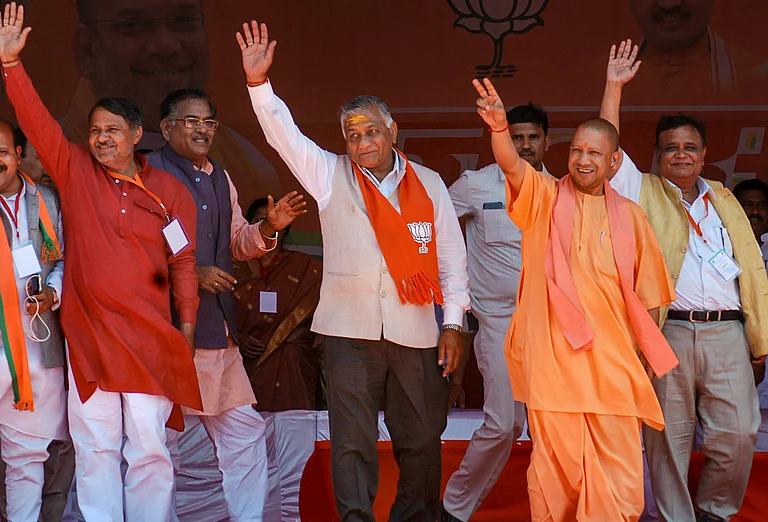The Yogi Adityanath government has moved an application under Section 321 CrPC to withdraw all charges—including murder—against ten accused in the killing of Mohammad Akhlaq.
The withdrawal request, backed by written approval from the Uttar Pradesh Governor, was filed before the Upper Sessions Court in Gautam Buddha Nagar.
The 2015 lynching, triggered by rumours of beef, became a national flashpoint over mob violence, communal polarisation, and the politics of food.
Yogi Adityanath Government Moves to Withdraw All Charges Against Akhlaq’s Killers
UP government has moved to lower court with a request to withdraw murder and related charges against all accused in the 2015 Dadri lynching case.
Over a decade after a mob lynched Mohammad Akhlaq in Dadri over rumours of beef, the Yogi Adityanath government in Uttar Pradesh has moved to withdraw all charges, including that of murder, against the ten men accused in the 2015 killing.
According to the application—a copy of which is in the possession of Outlook—the Uttar Pradesh government has filed an application before the Upper Sessions Court in Gautam Buddha Nagar, where the case is being heard, seeking the withdrawal of all charges against the accused. Among them is Vishal Rana, son of local BJP leader Sanjay Rana from Dadri.
The accused were initially charged under various sections of the Indian Penal Code (now superseded by the Bharatiya Nyaya Sanhita), including 302 (murder), 307 (attempt to murder), 323 (voluntarily causing hurt), 504 (intentional insult with intent to provoke breach of peace), and 506 (criminal intimidation).
The lynching of Mohammad Akhlaq on the night of September 28, 2015, remains one of the most defining and chilling moments in India’s recent communal history.
Akhlaq, a 52-year-old resident of Bisada village, was dragged out of his home and beaten to death by a mob after a temple loudspeaker allegedly announced that he had slaughtered a cow and stored beef in his refrigerator. His son Danish was critically injured while trying to defend him.
The withdrawal application was moved on October 15 by Bhag Singh, Assistant District Government Counsel, Gautam Buddha Nagar, acting on the directions of the State Government conveyed through a letter dated August 26.
The application, which remains pending in court, notes that the Governor of Uttar Pradesh has granted written approval for the withdrawal of prosecution. It also reiterates the government’s position that the meat recovered from the scene was identified as beef by a government laboratory.
Attached to the application is a letter by Brijesh Kumar Mishra, Joint Director (Prosecution), Gautam Buddha Nagar, directing Bhag Singh to proceed under Section 321 of the Criminal Procedure Code (CrPC), which deals with withdrawal from prosecution. This provision empowers a Public Prosecutor or Assistant Public Prosecutor to withdraw from a case, either wholly or with respect to specific offences, but only with the consent of the court.
Akhlaq’s lynching became a national flashpoint in the conversation on mob lynching as a distinct category of crime. Instead of drawing unified condemnation, the killing provoked deeply polarised responses. Politicians, public intellectuals, and media platforms clashed over the motivations behind the attack, with some attempting to rationalise or downplay the violence.
For many, the lynching symbolised a watershed moment—one in which anxieties over majoritarianism, intolerance, and the politics of food came to dominate public discourse.
Writers and artists returned their state awards in protest, citing rising intolerance; citizens’ groups organised “Not In My Name” marches across cities; and scholars warned that the lynching signalled a deeper erosion of liberal democratic values in the country.
Akhlaq’s family’s pursuit of justice, meanwhile, became ensnared in political contestations—from shifting forensic claims and counter-investigations to public rallies held in support of the accused.
Tags
